In the case of an emergency, it is important to make sure that you are prepared.
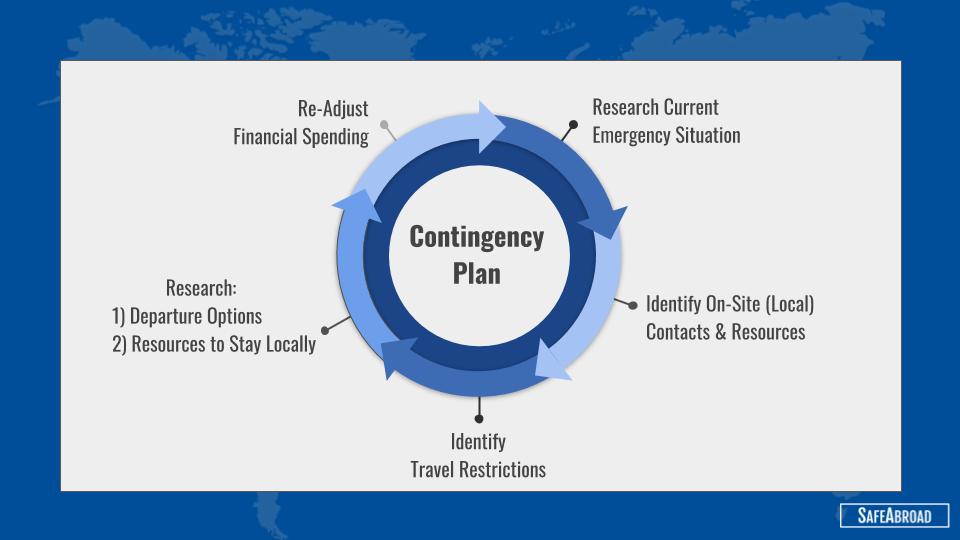
During your research, keep the following in mind:
– Identify on-site (local) contacts & resources.
– Identify accessible medical resources.
– Identify travel restrictions.
– Research departure options or resources to stay safe locally for a longer period of time (including re-adjusting financial spending to accommodate an emergency situation)
Do whatever is necessary and reasonable to ensure your personal safety and well-being.
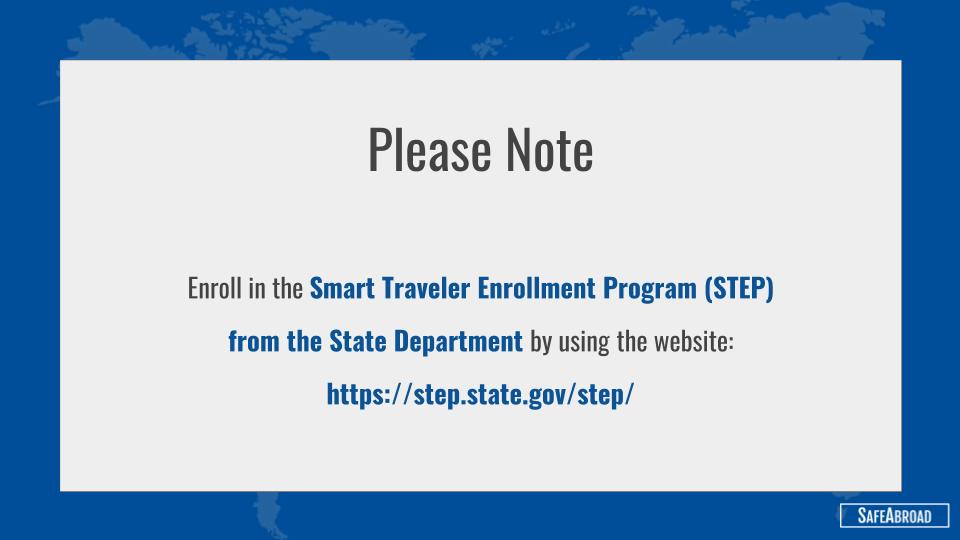
You can do so at this link: https://step.state.gov/step/
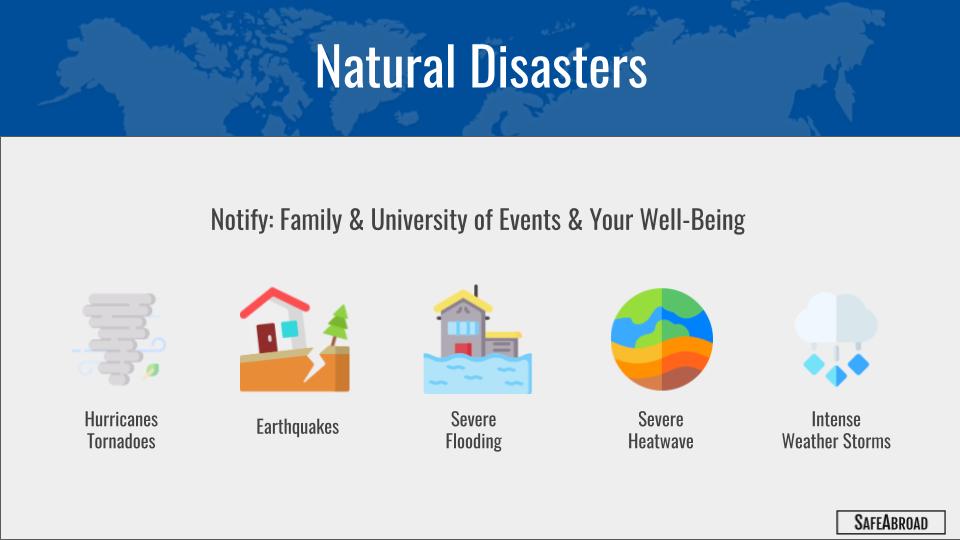
To ensure your safety, monitor weather services and take shelter in the event of a natural disaster. Maintain hazard awareness and follow local protocols. When all is over, notify your family and university of the events that occurred and of your well-being.
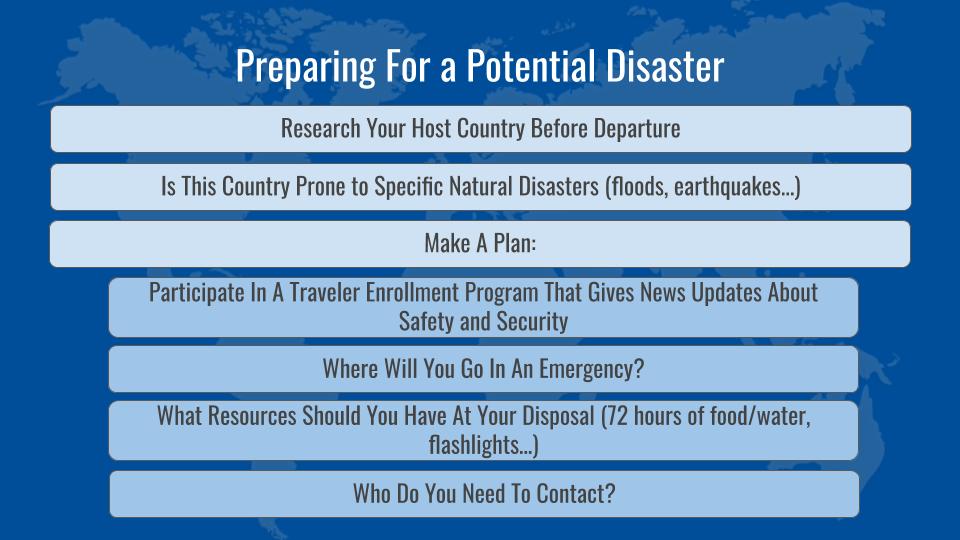
(1) Research you host country before arriving and question whether or not it is prone to certain types of disaster, such as floods, earthquakes, or tornadoes.
(2) After determining whether or not there is a specific kind of disaster that may occur, create a safety plan. Decide on actions you will take in an emergency, such as: Where will you go? and Do you have a secondary emergency location?
(3) Ensure that you have the resources that you need. It is a good idea to have up to 72 hours worth of food and water at your disposal when possible, in case travel is restricted during a disaster.
(4) Keep in mind who you need to contact. Have written contact information for your program leader, home university, and family contact in case you cannot use your own phone.
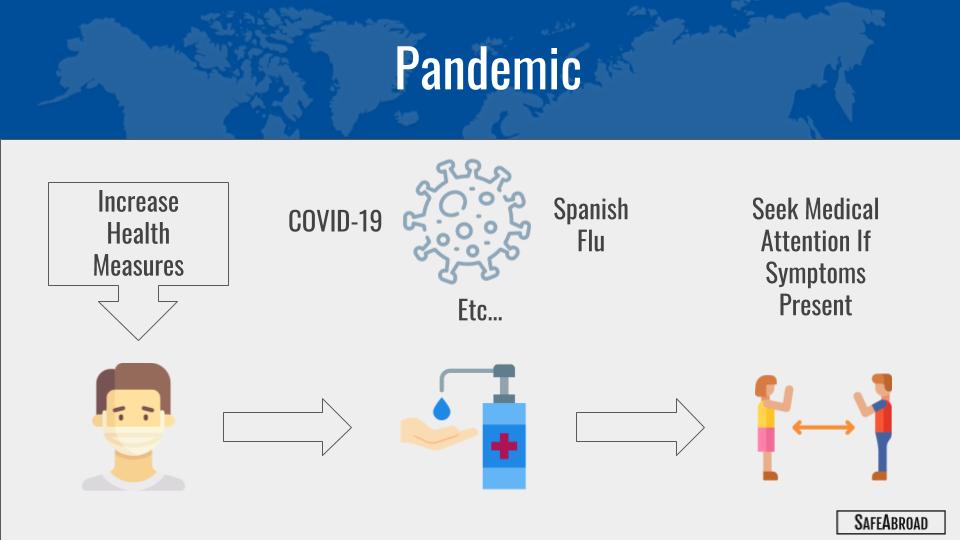
Increase your health measures such as sanitation, full-coverage clothing, and minimal contact with others.
When all is over, notify your university and family of your well being.
Pages: 1 2


